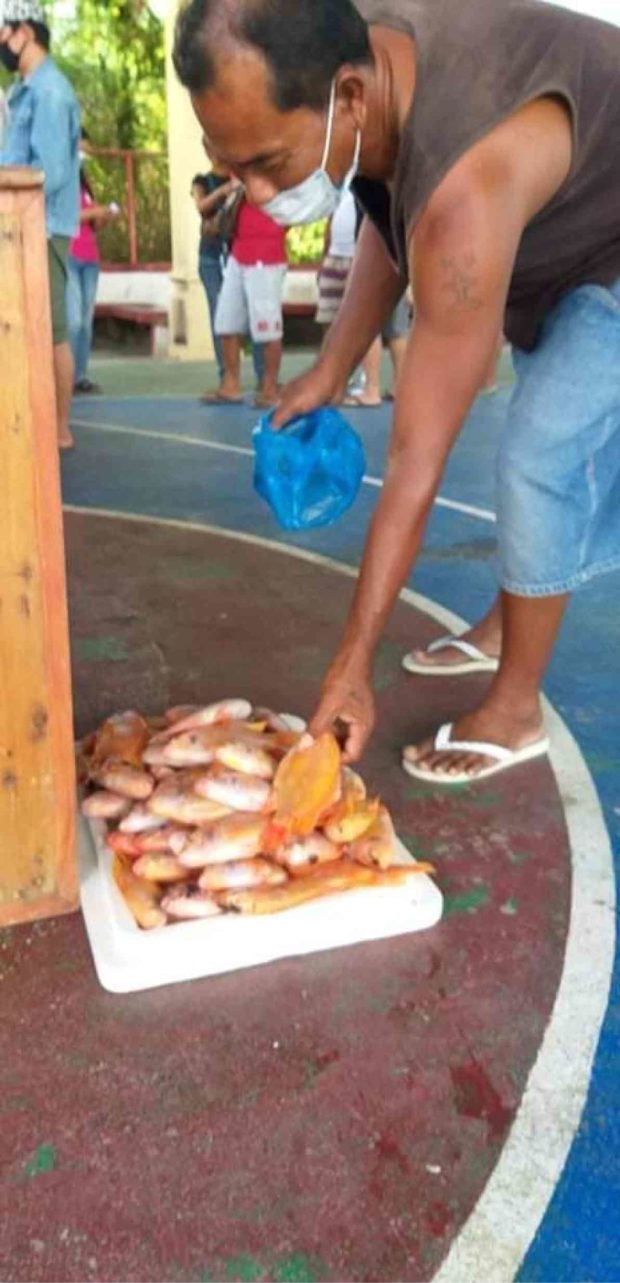ALAMINOS CITY, Pangasinan, Philippines — In the midst of red-tagging of some community pantry operators, those who are running pantries in this city are getting buckets of something red — the tilapia kind.
The Bureau of Fisheries and Aquatic Resources (BFAR) in the Ilocos region donated 150 kilos of red tilapia (Oreochromis mossambicus x Oreochromis niloticus) to at least 39 community pantries set up by the residents in the city.
Cultured
Segundina Rosario Gaerlan, officer in charge of the BFAR Ilocos, said the tilapia they sent out on April 24 were cultured at the Regional Mariculture Technology Demonstration Center in Barangay Lucap here.
Lucap village chair Raul Bacay, the chair of the city’s league of barangays, personally received the 100 kilos of the red tilapia that were immediately passed on to the community pantries.
The remaining 50 kilos were allotted for the various isolation facilities in the city.
More tilapia will be harvested from the Lucap experimental marine cages on May 12, said Gaerlan.
She said the BFAR identified the recipients of the cultured tilapia with the concurrence of the Bureau of Agricultural Statistics and the National Fishery Research and Development Institute, which funded the red tilapia research.
According to the BFAR, the red tilapia is a crossbreed of three kinds of tilapia—the Oreochromis mossambicus, the Oreochromis niloticus and the Oreochromis aureus—that turned their color into red-orange, pale red or pink.
Crossbreed
The first red tilapia ever produced was in Taiwan in the late 1960s. It was a crossbreed of a mutant reddish-orange female Mozambique tilapia and a normal male Nile tilapia.
Ernesto Aquino, 63, tricycle driver in Lucap, said it was his first time to see a red tilapia.
“I’m very thankful for the pantry in the village. We did not only get eggs and vegetables, but tilapia as well,” Aquino, who earns P150 a day, told the Inquirer.
While it was the village council that put up the pantry in Lucap, private residents are donating food to help sustain it.
